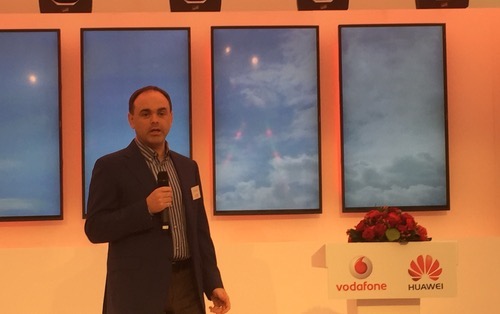Interoperability issues between Ericsson and Huawei are hindering the rollout of NB-IoT companies, in response to quite a few trade figures and consultants.
Such issues might hand a bonus to rival applied sciences concentrating on demand for low-power, wide-area (LPWA) connectivity and go away NB-IoT taking part in a smaller position than was initially envisaged.
NB-IoT was included within the Release 13 requirements replace from the 3rd Generation Partnership Project (3GPP) specs group final summer time however has subsequently limped into the industrial Internet of Things (IoT) market, regardless of earlier predictions that it could shortly sweep apart its rivals. (See Vodafone to ‘Crush’ LoRa, Sigfox With NB-IoT.)
Crushing Developments
Matt Beal, Vodafone’s director of innovation and structure, final yr predicted that NB-IoT would make mincemeat of Sigfox and LoRa.
Vodafone Group plc (NYSE: VOD), one among its greatest supporters, has missed NB-IoT launch targets in a few of its European markets. Several different operators which may have been anticipated to take instant benefit of NB-IoT have made no vital commitments to it and are at present selling different applied sciences akin to Sigfox, LoRa and LTE-M. Those gamers embrace France’s Orange (NYSE: FTE), KPN Telecom NV (NYSE: KPN) of the Netherlands, Spain’s Telefónica and South Korea’s SK Telecom (Nasdaq: SKM). (See Vodafone to Miss NB-IoT Launch Targets, Eurobites: Orange Bangs the Drum for LTE-M, Sigfox ‘Only Option’ Today, Says Telefónica and LoRa May Not Be for Long Haul at Orange.)
According to a number of executives within the IoT market, one of many issues with NB-IoT is that tools from China’s Huawei Technologies Co. Ltd. is incompatible with gear from Sweden’s Ericsson AB (Nasdaq: ERIC), which successfully means there may be a couple of “version” of NB-IoT.
“Some companies oversold NB-IoT and now the operators realize it is not that easy a deployment,” mentioned Gabor Pop, a options advertising supervisor with Actility, an IoT software program firm, throughout an LPWA convention in Paris in March. “The software upgrades are quite expensive, there is still no ecosystem, there is still a Huawei implementation that is not the same as an Ericsson one — it seems they are not interoperable.” (See The NB-IoT Train Is Delayed.)
Actility helps a variety of LPWA applied sciences, together with LoRa, LTE-M and NB-IoT, however Pop reckons the issues about NB-IoT have satisfied some operators to deploy LoRa “and wait a couple of years for NB-IoT.”
John Horn, the CEO of IoT specialist Ingenu, echoed Pop’s remarks about interoperability issues between Ericsson and Huawei throughout a current interview with Light Reading. (See Ingenu Seeks Funding to Support Growth.)
“Rollouts announced in… different countries [will] end up being… different technologies,” he mentioned.
Ingenu has developed a rival LPWA expertise known as RPMA (for random section a number of entry), which supplies Horn a vested curiosity in knocking NB-IoT. (See Ingenu Revs Up IoT Rhetoric.)
But his criticisms demand to be taken critically given his trade standing — he was beforehand the president of managed companies participant RacoWireless, offered to rival KORE Wireless Group Inc. in 2014, and earlier than that spent 9 years as a director at T-Mobile US Inc. — in addition to the doubts from different quarters.
Horn blames the emergence of various variations of NB-IoT on an mental property (IP) dispute between Ericsson and Huawei and says the 2 distributors “are still battling over IP in the standard.”
He just isn’t the one one who says that Ericsson and Huawei have clashed on the IP that underpins NB-IoT.
Last yr, a spokesperson for the LoRa Alliance — an affiliation set as much as promote LoRa expertise over alternate options together with NB-IoT — mentioned the standardization of NB-IoT was held up by the IP battle between Ericsson and Huawei.
Asked to touch upon the remarks about interoperability, and if there may be any downside with the present commonplace, a spokesperson for the 3GPP mentioned in an emailed response: “We cannot comment on implementations, as we simply do not have the facts to hand and we would assume that there are various aspects to consider, in addition to the 3GPP specifications.”
“I am sure that if this is related to issues with the specifications, this will be fed back to 3GPP groups as technical contributions,” the spokesperson added.
Next web page: Vendors in denial
